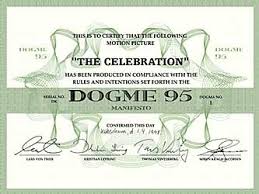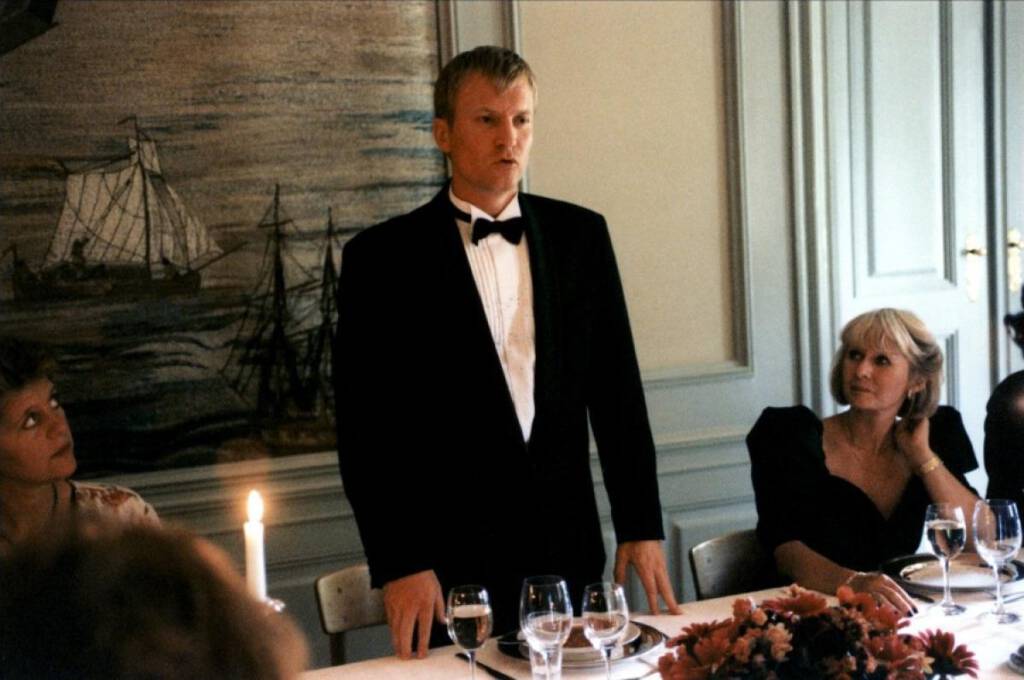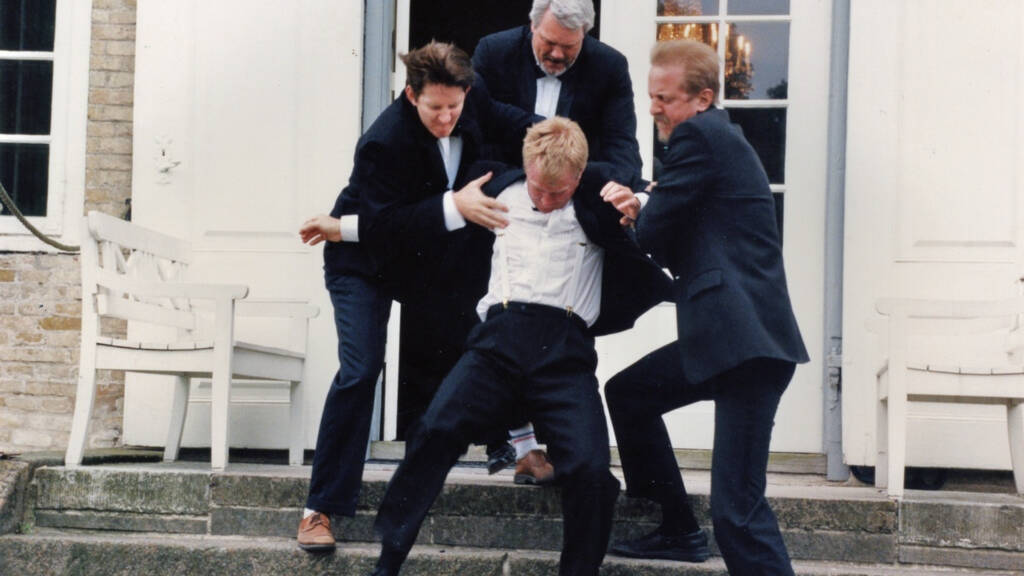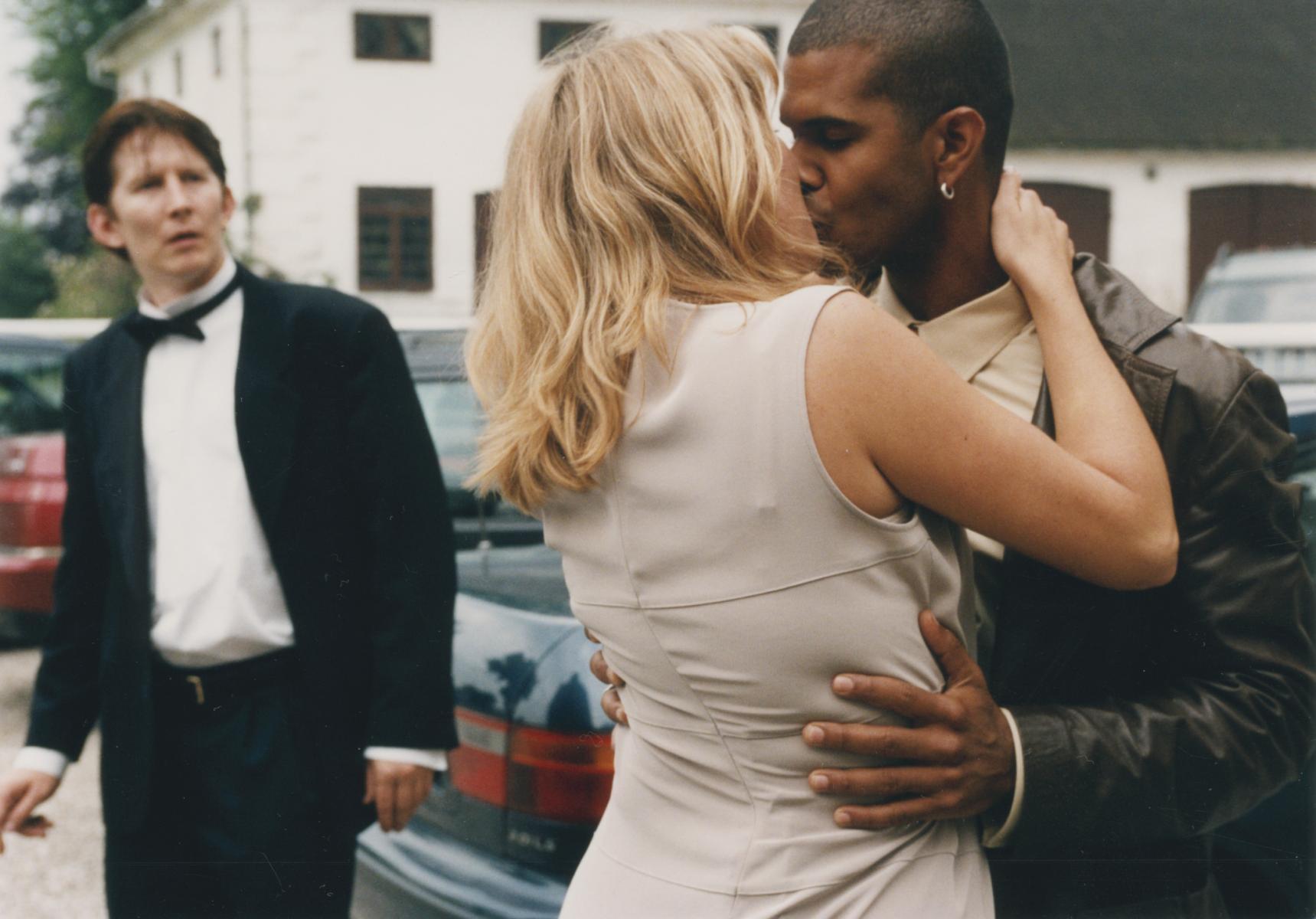Festen (directed by Thomas Vinterberg – uncredited, 1998) is an intriguing film for multiple reasons. Firstly, the film is part of the Dogme 95 movement, and secondly, it is a film that exhibits themes of trauma and family issues in an incredibly sensitive and realistic way.
Dogme 95 was a film movement started by two Danish filmmakers, Lars von Trier and Thomas Vinterberg, in 1995. These filmmakers wrote a manifesto in which they outlined the rules of the movement, and if a filmmaker were to want to be a part of the movement, their films would need to prescribe to the rules of the manifesto, referred to as the “Vows of Chastity”. The purpose of this movement and this manifesto was to create films as ‘purely’ as possible, simply with acting, filming and editing. Any special effects or technology such as extra lighting or non-diegetic sound was not allowed in a Dogme 95 film. The filmmakers wanted the Dogme movies to emphasise the art of storytelling, theme and plot over technological effects.

The ideology of the Dogme 95 movement was captured masterfully in Festen. The story follows a Danish family who gather at the lavish home of Helge (Henning Moritzen), to celebrate his 60th birthday. Throughout the evening, the audience is tickled with the absence of one of Helge’s children, his daughter Christine, and a dark secret is revealed by his son, Christian (Ulrich Thomsen), who is Christine’s twin. The celebration is soured as the family is confronted with the harsh truths of the past, particularly Christian’s other siblings, Michael (Thomas Bo Larsen) and Helene (Paprika Steen).


The filmmaking techniques under the “Vows of Chastity” enhance the rawness of the story, and at times you feel as if you are peering lives of this family through a home video. It creates a sense of realism that is enthralling yet disconcerting. The shaky, hand-held cinematography emphasises the characters’ feelings of restlessness and hysteria, as they become increasingly more frantic and disturbed by the evening’s revelations

Despite the ongoing turmoil of the unhinged celebration, there are profound moments of calm in which Vinterberg delves into innate family values of love and protection. On the other hand, the plot touches on issues of classism and racism, with Helene’s boyfriend Gbatokai (Gbatokai Dakinah), who is a person of colour, and with Christian’s love interest Pia (Trine Dyrholm), who works as a waitron at the party. Although the plot does not elaborate on these topics enough to become an important discourse within the plot, it still shines a light on the ills that exist within the walls of a family made up of wealth and privilege.
“This family is kaput!”
Festen itself is a celebration of film as an artwork. It portrays the creativity of the filmmaker as he overcomes the restrictions of the Dogme 95 movement, as well as the incredible skill of the actors whose performances encapsulate the drama and agony of an unravelling family.
If you would like to read up more about Festen, follow the links below:
Rotten Tomatoes | IMDb | Letterboxd

